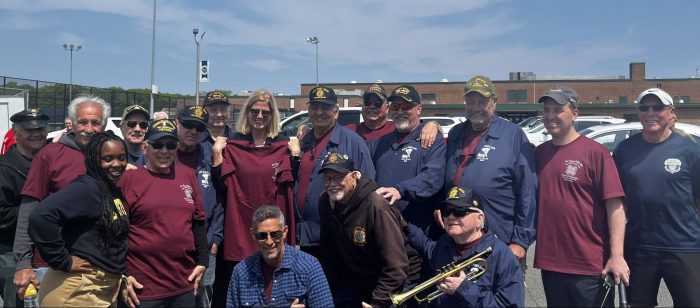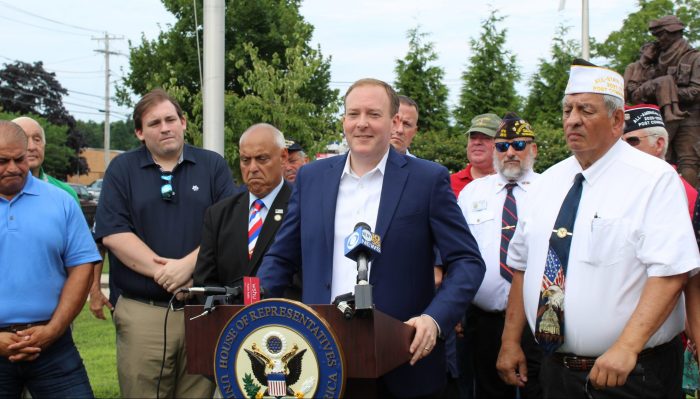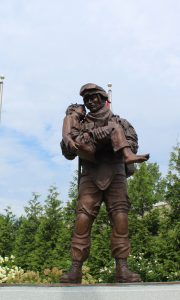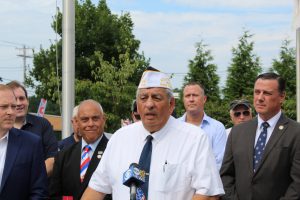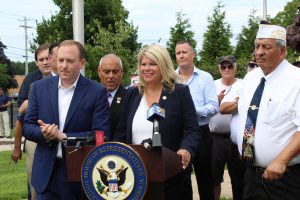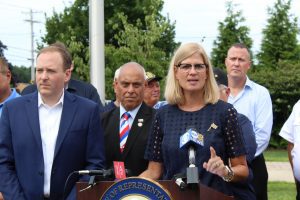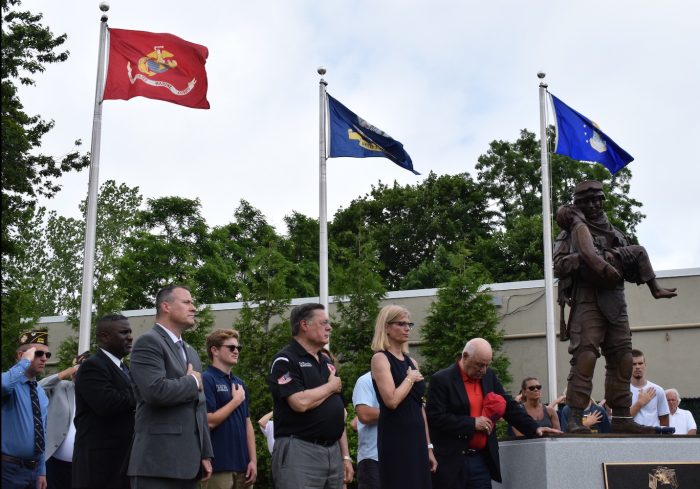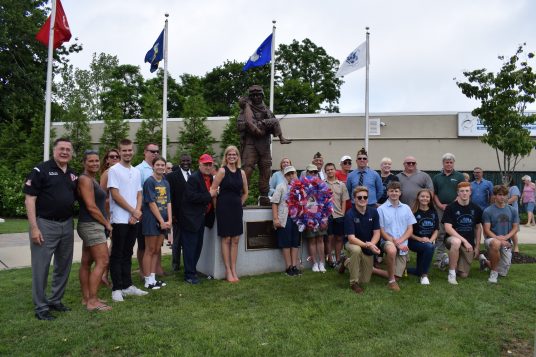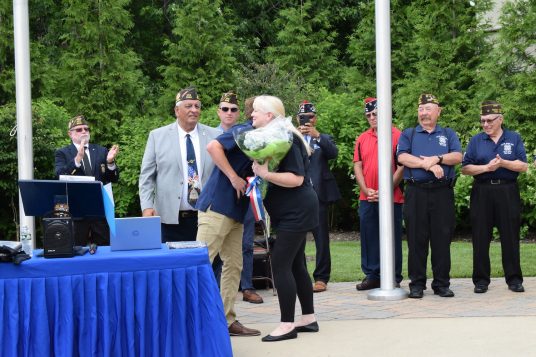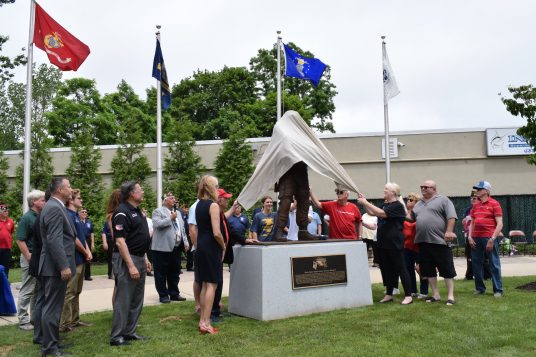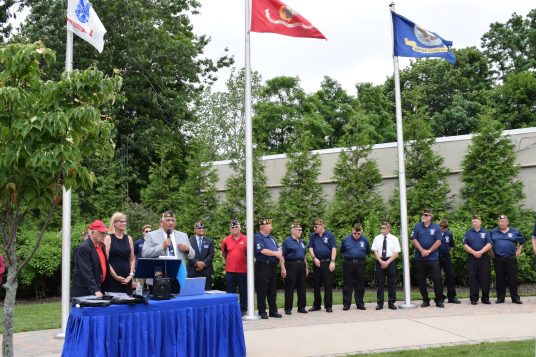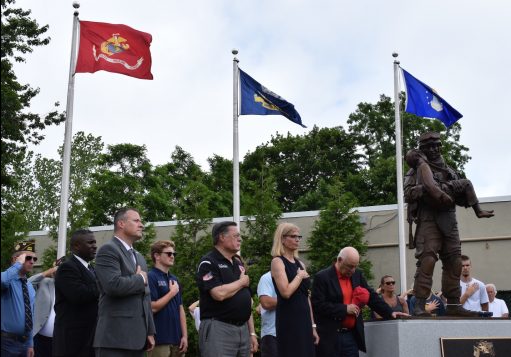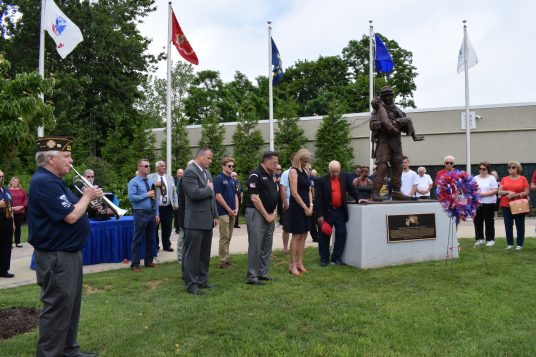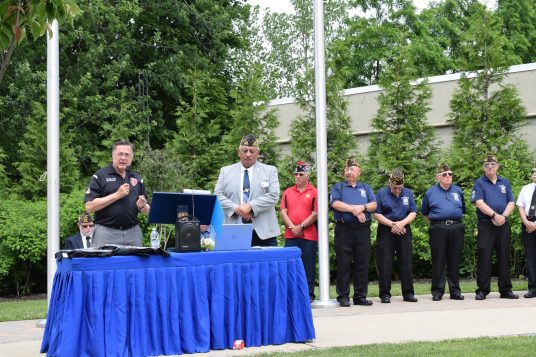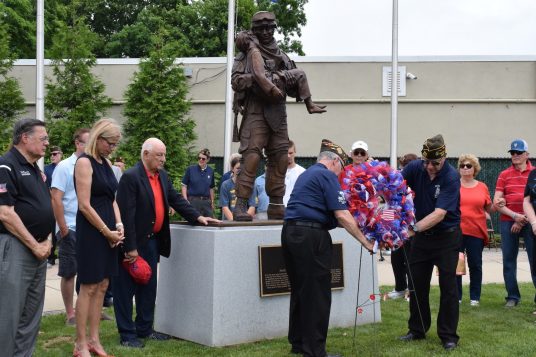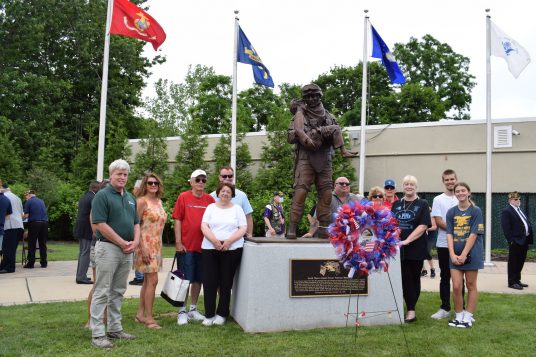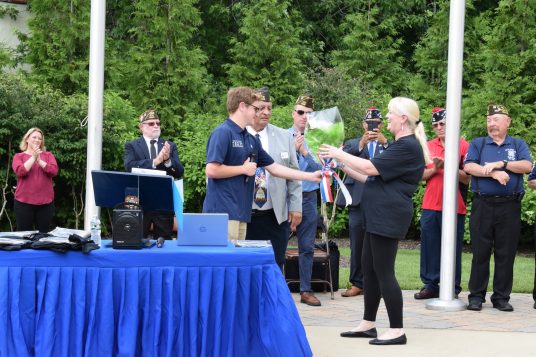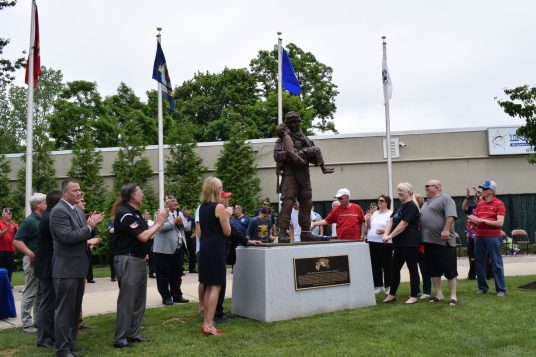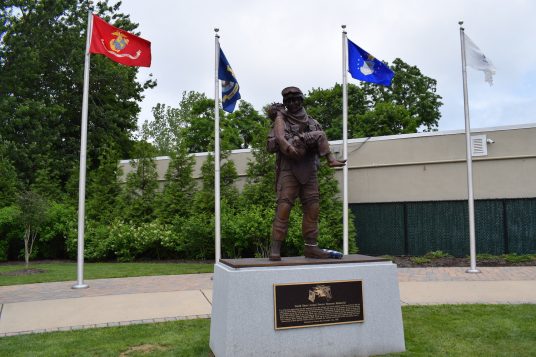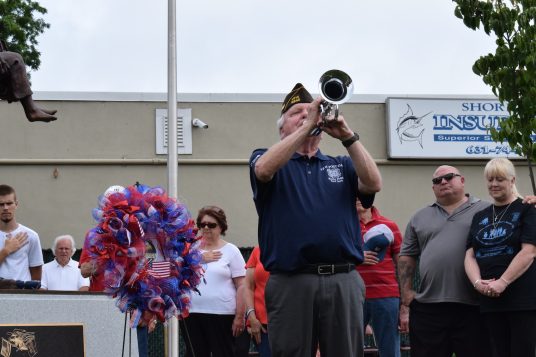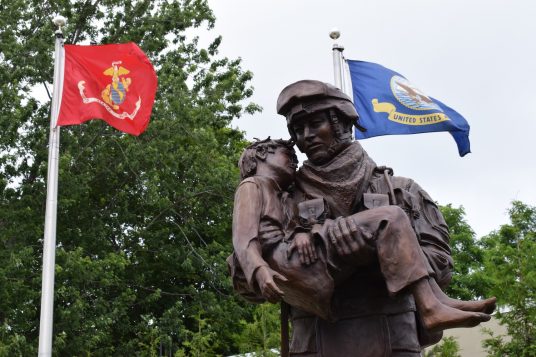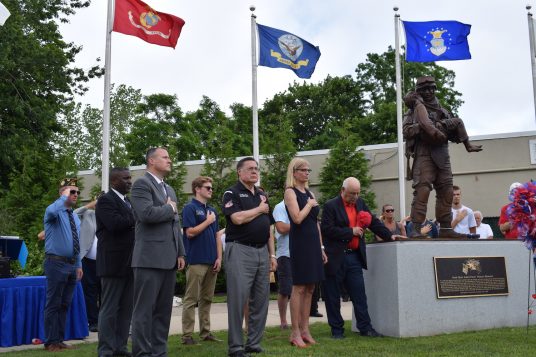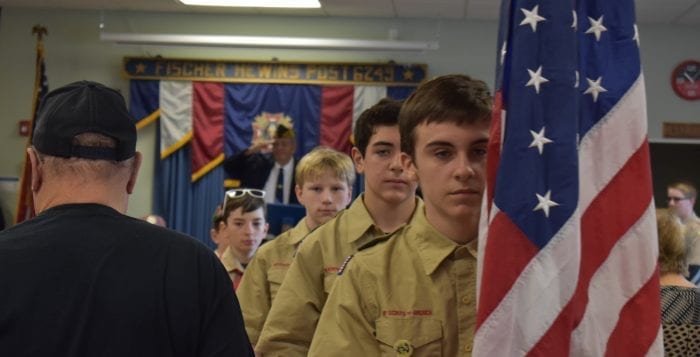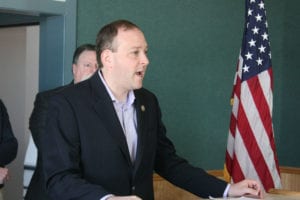By Sofia Levorchick
At the starting line, the “Star Spangled Banner” played over the loudspeaker, evoking a solemn patriotic atmosphere. Veterans removed their service hats and saluted as they gazed upon an American flag rippling spectacularly beneath the May sky. All applauded and cheered as the runners took their marks.
The countdown began, and at exactly 12 p.m. an announcer called out, “Go!” A large group of racers took off, darting toward a three-mile stretch of concrete, asphalt and pine barrens.
The Rocky Point VFW Post 6249 hosted its second annual Joseph P. Dwyer Memorial 5K race on Sunday, May 21, recognizing veterans with post-traumatic stress disorder and highlighting veterans’ issues in Suffolk County.
The race was held in collaboration with the Joseph P. Dwyer Veterans Peer Support Project, a peer-to-peer support program for veterans experiencing PTSD and traumatic brain injury.
A Mount Sinai native, Joseph P. Dwyer had served in Iraq. After returning from the war, he suffered from PTSD — a mental health condition triggered by trauma that causes symptoms such as flashbacks, anxiety and emotional distress. He died from an accidental overdose in 2008.
Town of Brookhaven Councilwoman Jane Bonner (R-Rocky Point) reflected upon Dwyer’s legacy and the symbolism of his statue, situated on the corner of Broadway and Route 25A in the Rocky Point Veterans Memorial Square.
“The statue’s prominence is important because it brings awareness to PTSD every day,” Bonner said, adding, “The run was born from that prominence of the statue.”
All 62 counties across New York State participate in the Dwyer Project, raising awareness for mental health and promoting the well-being of American veterans. Melanie Corinne, the Suffolk County Dwyer Project’s coordinator and a U.S. Marine Corps veteran, described the program’s mission as “making sure other veterans don’t slip through the cracks with efforts to support veterans, active duty service members and their families in their wellness goals with the help of trained veteran peers.”
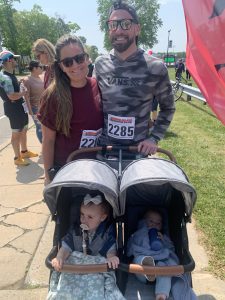
This year’s 5K race, held again at Rocky Point High School, was one such effort to boost public awareness and funds for veterans with PTSD, asking participants for a $25 to $35 donation.
Veterans from Post 6249 also attended the race — some as spectators, some volunteers and some runners.
Frank Asselta, one of the organizers of this race, served as a medic during the Vietnam War and has been involved with the Rocky Point VFW for five years. He emphasized the organization’s considerable local following and success at fundraising for veteran causes. “The VFW has found support from thousands of people across Long Island,” he said.
Joe Cognitore, commander of Post 6249, said the VFW launched this annual tradition “for participants to have a great day and to reinforce everyone — veterans, teachers, students, community members — who have PTSD, spreading awareness and keeping that awareness alive.”
And the event had participants and veterans across the community smiling while they congregated with those around them on a radiantly sunny May day, exceeding last year’s turnout.
Shannon O’Neill, one of over 100 runners and walkers who participated in this event, described herself as a woman devoted to serving veterans in the community. O’Neill, who works with military and veteran students at Suffolk County Community College, was motivated to run in this event because “no one on Long Island does more for veterans than the VFW in Rocky Point,” she said. “I wanted to support their initiatives so that they can continue to give back to veterans who are so deserving and so in need. It’s really such a great cause.”
Many volunteers helped out, performing duties such as registering runners, handing out race bibs and offering refreshments as they cheered the runners on.
Rocky Point High School student Travis Pousson finished first, crossing the finish line in just 19 minutes.
Post member Pat, a veteran and former Cold War-era spy for the United States, spoke fondly about the 5K event, calling it “a worthy cause for men suffering from PTSD, and they need all the help they can get.” He also reminisced on his memories at the VFW, expressing that the VFW has “created a brotherhood, and every member in it is very community-minded.”
Ultimately, the race not only brought recognition to veterans with PTSD but also served as a powerful reminder of the profound impact American service members have had on society.
“I think that so many of the guys in the VFW never got their welcome home and never got their thank yous,” O’Neill said. “This is our opportunity to make sure that they are seen and acknowledged for their time and service because they always continue to give back.”
She added, “These guys never stop serving — they’re still serving today, so this is our opportunity to give back and to serve in our own way.”

